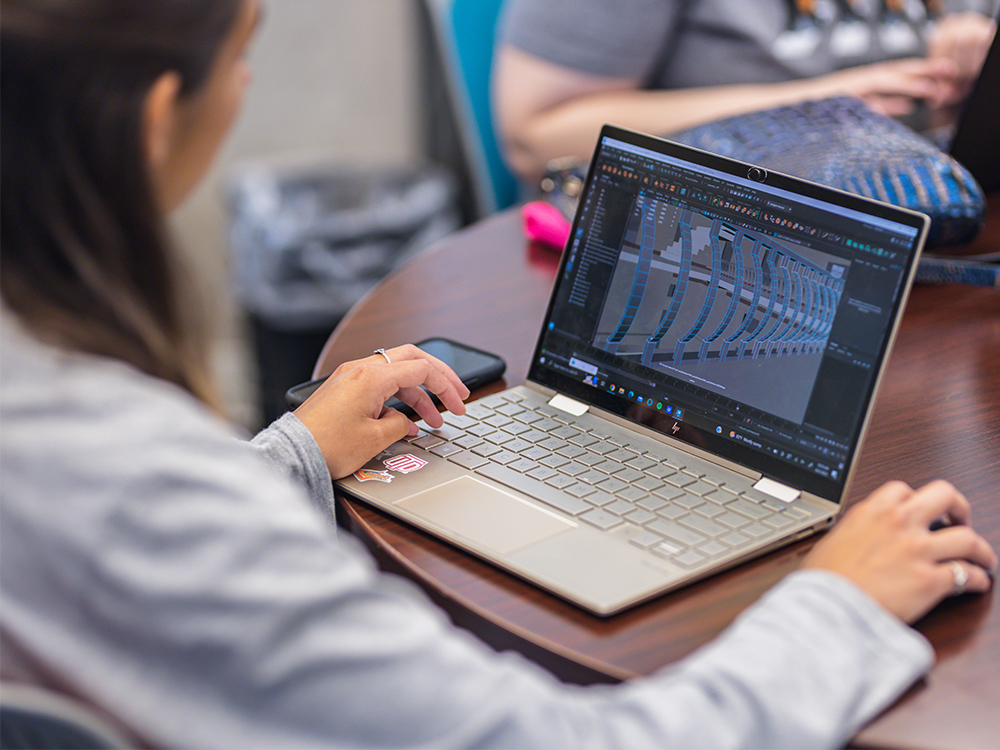Students Get Material Lessons in Metaverse Marketing Project
07.10.2023
 Arts, technology and emerging communication junior Sage Herrera participated in a five-week marketing project in the metaverse with students in Germany.
Arts, technology and emerging communication junior Sage Herrera participated in a five-week marketing project in the metaverse with students in Germany.
A project aimed at helping University of Texas at Dallas students learn about creating content and marketing in the metaverse also provided practical lessons this summer on working with colleagues in another country.
The animation and games students worked with university students in Reutlingen, Germany. The German students fashioned ideas for marketing apparel in the metaverse while the UT Dallas students implemented those ideas in virtual reality.
While the metaverse currently is limited to a few online platforms where individuals can interact with each other, play games and even purchase products, its future is projected to be an immersive version of the internet accessed via virtual-reality headsets, augmented-reality glasses, phone apps and other devices. Companies are working to build a place where people can meet, work and play with others in virtual surroundings from any location in the world.
“It was a good opportunity for our animation students and our university to start exploring how virtual environments can augment education as well as the consumer world,” said Jeff Price, associate professor of game development in the Harry W. Bass Jr. School of Arts, Humanities, and Technology.
 Students created virtual environments for three brands, including Nike.
Students created virtual environments for three brands, including Nike.
Price said the five-week summer session helped build collaborative habits and helpful group dynamics, while ramping up technical skills.
“This wasn’t theoretical,” he said. “They had a real client and a global team. The whole process was so important to learning.”
Dr. Jochen Strähle, dean of the Texoversum School of Textiles at Reutlingen University, supervised the German students. Even though class sessions did not coincide with those at UTD and time zones were a challenge, the project was invaluable, he said.
“Doing this kind of international collaboration was huge,” he said. “It perfectly mirrored the reality that these students will face in a couple of years, such as working on teams with U.S. colleagues, dealing with different time zones and getting past varied expectations and skills. But they will still have to deliver.”
The Bass School students created virtual environments on the Spatial platform for three brands: Nike, Gucci and Patagonia. Price said there was not enough time to add interactive games and other detailed marketing components, but he said the students accomplished a great deal.
Metaverse training will continue with future classes and in his lab, Price said.
“As long as we are helping the world use this new technology, that’s what I really want this to be about,” he said.
–Phil Roth
Tags: AHT, Jeff Price